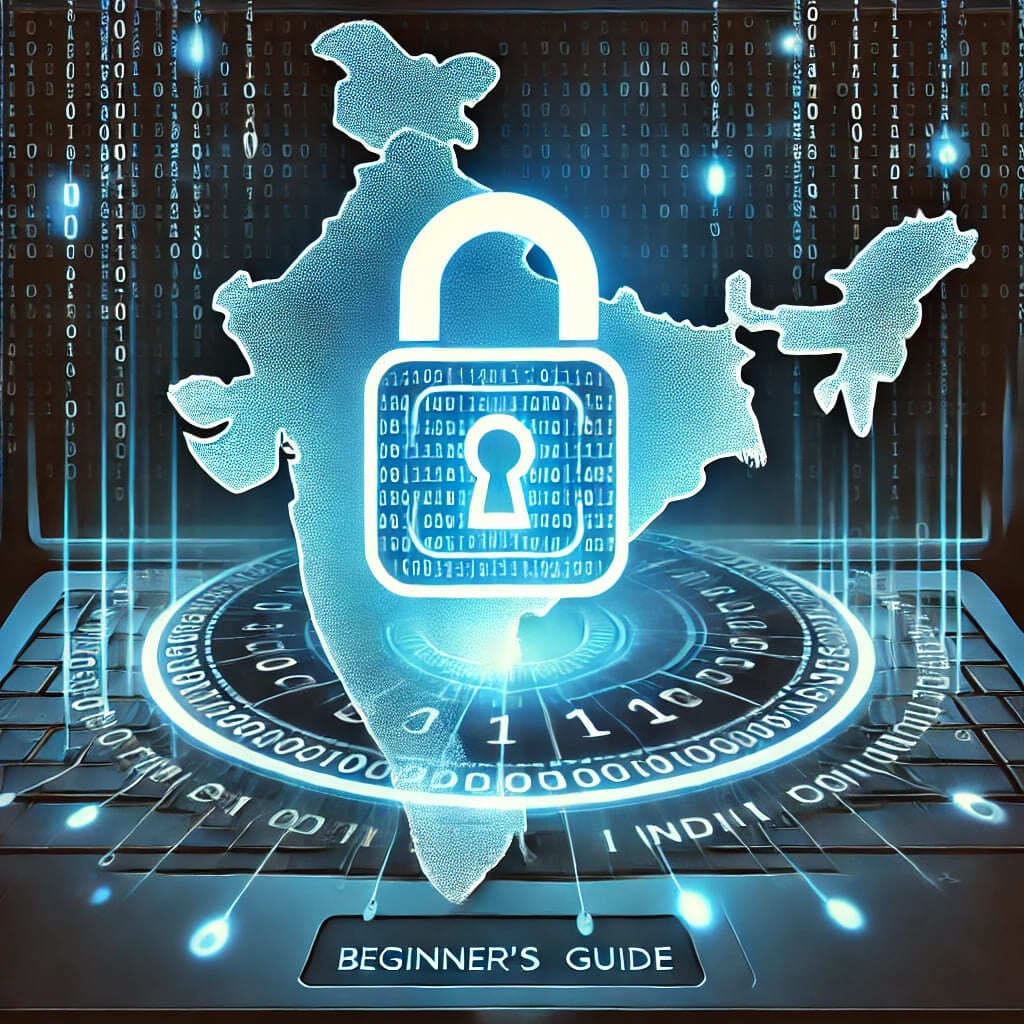
What Is Cybercrime? A Beginner’s Guide for Indians – In today’s digital era, where the internet has become an integral part of our daily lives, the rise of cybercrime has become a significant concern. From financial frauds to data breaches, cybercrime impacts individuals, businesses, and governments. This beginner’s guide aims to provide a comprehensive understanding of cybercrime for Indians, highlighting its types, prevention methods, and legal remedies.
What Is Cybercrime?
Cybercrime refers to illegal activities carried out using computers, digital devices, or the internet. It involves exploiting technology to harm individuals, steal data, or disrupt systems. With India’s increasing reliance on digital platforms for banking, shopping, and communication, cybercriminals have found numerous opportunities to exploit vulnerabilities.
Types of Cybercrime
Understanding the types of cybercrime can help you stay vigilant. Here are the most common categories:
- Hacking
Unauthorized access to computer systems or networks to steal, modify, or destroy data. - Phishing
Fraudulent emails or messages designed to trick individuals into sharing sensitive information like passwords or bank details. - Identity Theft
Stealing personal information to impersonate someone for financial or legal gains. - Online Fraud
Scams involving fake online shopping websites, investment schemes, or lottery offers. - Cyberbullying
Harassment or bullying through social media, emails, or messaging platforms. - Ransomware Attacks
Malware that locks your system or data, demanding a ransom for access. - Child Exploitation
Distribution of explicit content involving minors, often through the dark web. - Cryptocurrency Fraud
Scams involving fake cryptocurrency exchanges or wallets.
How to Protect Yourself from Cybercrime
Here are practical tips to safeguard yourself from cyber threats:
- Use Strong Passwords for stopping cybercrime
Create unique passwords with a mix of letters, numbers, and symbols for each account. - Enable Two-Factor Authentication (2FA)–
Add an extra layer of security to your online accounts. - Be Cautious with Emails and Links
Avoid clicking on suspicious links or downloading attachments from unknown sources. - Keep Software Updated
Regularly update your operating system, apps, and antivirus software. - Secure Your Wi-Fi Network
Use strong passwords and encryption for your home and office Wi-Fi. - Monitor Financial Transactions
Regularly check your bank and credit card statements for unauthorized transactions. - Educate Yourself
Stay informed about the latest cyber threats and scams.
Legal Remedies for Cybercrime in India
India has robust laws to tackle cybercrime, primarily under the Information Technology Act, 2000, and related sections of the Indian Penal Code (IPC). Here are some key points:
- Reporting Cybercrime
Victims can report incidents through the National Cyber Crime Reporting Portal (www.cybercrime.gov.in) or by visiting their nearest police station. - Punishments for Cybercrime
- Hacking (Section 66 IT Act): Up to 3 years imprisonment and/or a fine.
- Identity Theft (Section 66C): Up to 3 years imprisonment and/or a fine of ₹1 lakh.
- Cyber Stalking (Section 354D IPC): Imprisonment of up to 3 years for the first conviction.
- Cybercrime Cells
Specialized cybercrime cells are available in most major cities to assist victims.
Why Cybercrime Awareness Is Crucial in India
India is one of the fastest-growing digital economies, making it a prime target for cybercriminals. According to reports, India witnessed over 18 million cyberattacks in the first quarter of 2024 alone. Educating citizens about cybercrime and its prevention is critical to building a secure digital ecosystem.
Conclusion
Cybercrime is a growing threat in India, but with awareness and preventive measures, you can protect yourself and your loved ones. Stay vigilant, report suspicious activities, and leverage the legal framework to combat cyber threats. By taking proactive steps, we can collectively create a safer digital environment.
FAQs
1. What should I do if I become a victim of cybercrime in India?
Report the incident immediately through the National Cyber Crime Reporting Portal or your local police station.
2. How can I secure my online accounts?
Use strong passwords, enable two-factor authentication, and avoid sharing sensitive information online.
3. Are there penalties for cybercrime in India?
Yes, cybercrimes are punishable under the IT Act, 2000, and IPC, with varying degrees of imprisonment and fines.
Contact us – http://panchanand.com
Report cyber crime complaint – http://cybercrime.gov.in

Leave a Reply